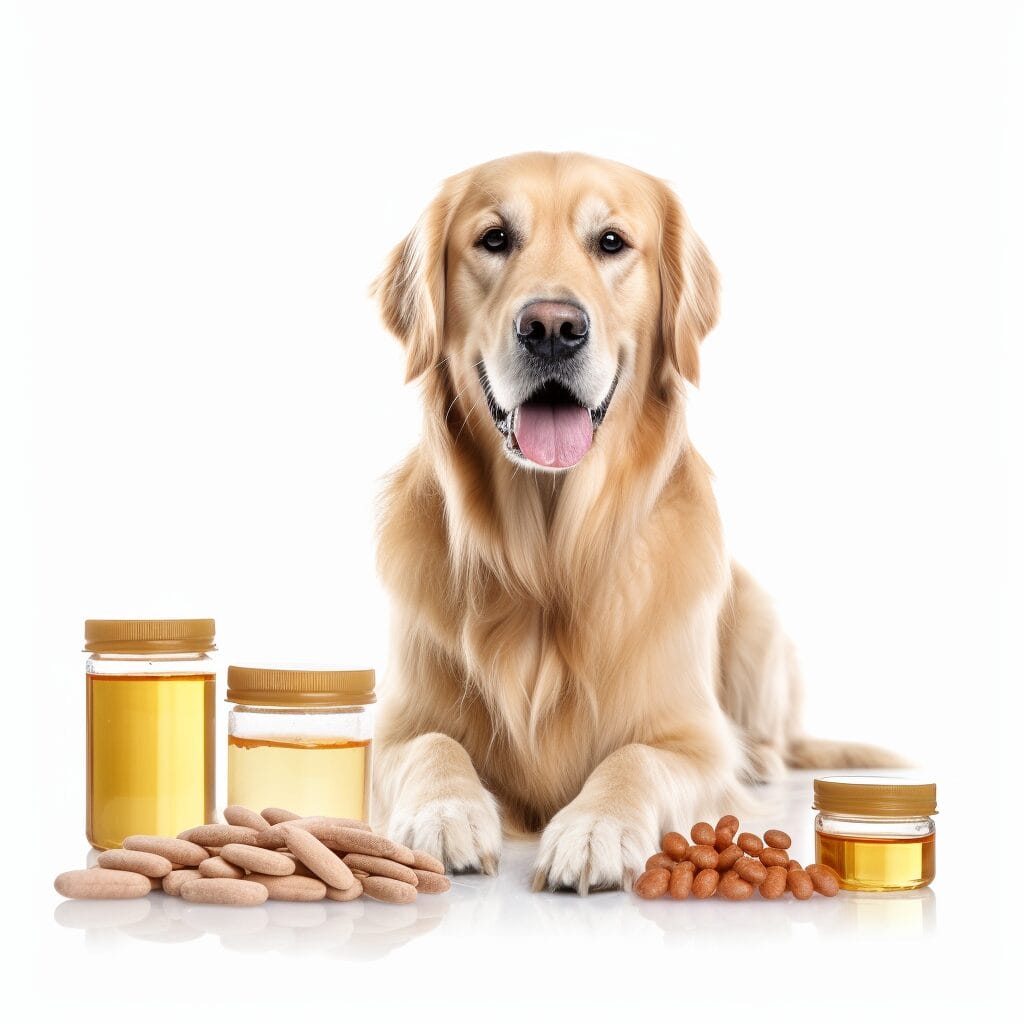Probiotics are not just a human health trend; they also offer a myriad of benefits for our furry friends. From promoting digestive health and alleviating allergies to boosting immunity, the advantages of probiotics and prebiotics for dogs are vast and impactful. Understanding these benefits is crucial for every dog owner seeking to enhance their pet’s well-being and gut health.
In this comprehensive guide, we delve into the world of probiotics and prebiotics for dogs, uncovering how these beneficial bacteria can support your canine companion’s overall health and digestive tract. Whether you’re dealing with digestive issues or simply aiming to optimize your dog’s wellness, incorporating probiotics and prebiotics into their routine may be the solution you’ve been searching for. Join us as we explore the transformative potential of probiotics and prebiotics in enhancing your dog’s gut health and vitality.
Benefits of Probiotics for Dogs 2024
What are probiotics?
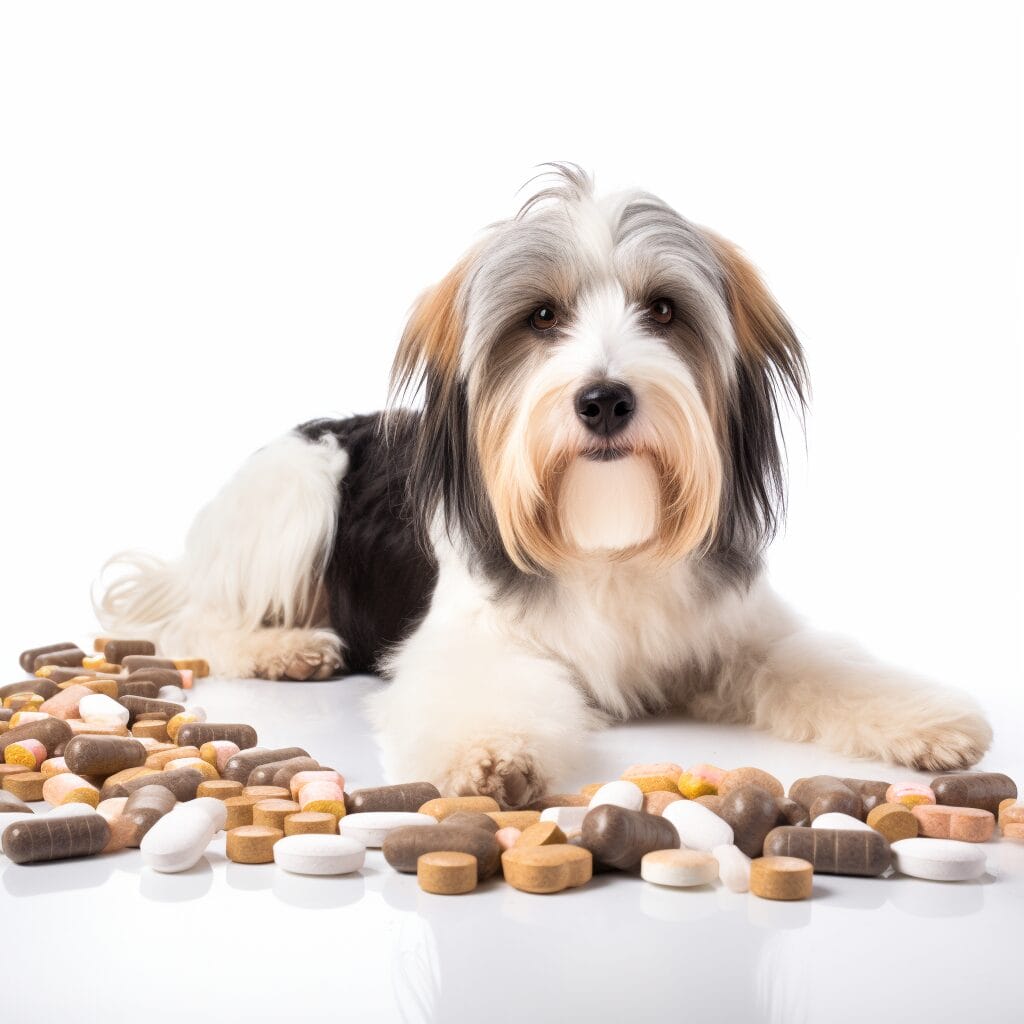
What are Probiotics?
Probiotics for dogs are live bacteria and yeasts that are good for your pet’s health, especially their digestive system. These beneficial microorganisms, probiotics, can help maintain the natural balance of bacteria in the gut, promoting overall well-being.
Probiotics work by introducing helpful bacteria to the dog’s digestive system, which can aid in digestion and fight off harmful microorganisms. They can also help with issues such as diarrhea, gas, and bloating.
Understanding Probiotics and Their Functions
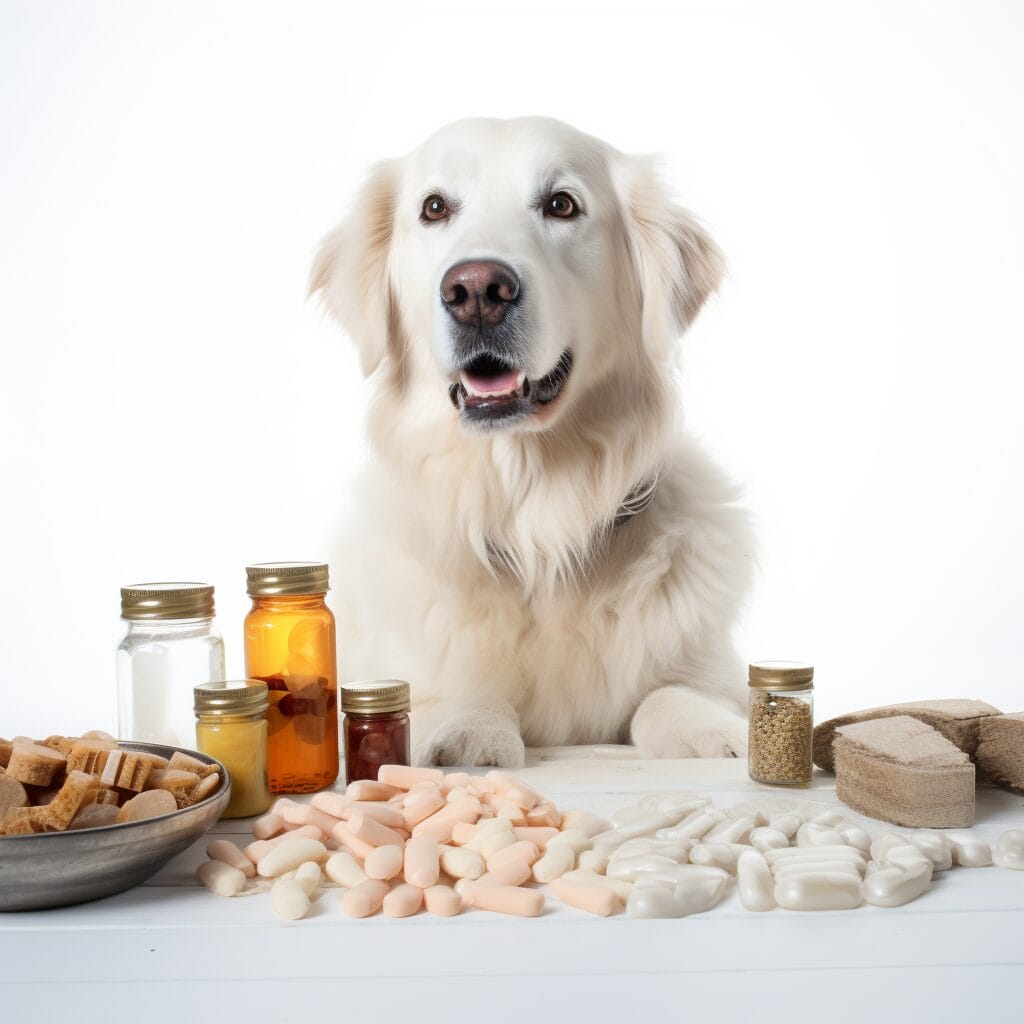
Role of Probiotics
Probiotics for dogs, as mentioned earlier, are live microorganisms that play a crucial role in promoting a healthy balance of gut bacteria. They aid in digestion and nutrient absorption, contributing to overall well-being and gut health. When probiotics chews are introduced into a dog’s system, they work to replenish the good bacteria in the gut, which can be disrupted due to various factors such as illness, stress, or antibiotic use.
These friendly bacteria help maintain gut health by preventing harmful microorganisms from flourishing. This essential function not only supports proper digestion and gut health but also bolsters the immune system. By doing so, probiotics contribute significantly to enhancing a dog’s gut health and ability to fight off infections and diseases.
Types of Probiotics
There are different types of probiotic strains, each with its own unique benefits for dogs’ gut health. For example, Lactobacillus acidophilus is known for its ability to produce lactic acid which creates an unfavorable environment for harmful bacteria. Another common strain is Bifidobacterium animalis that aids in reducing gastrointestinal issues and improving stool quality.
It’s important to note that these strains may have varying effects on different aspects of a dog’s health. Some may be more effective at addressing specific digestive problems while others excel at supporting overall immune function. Therefore, understanding the distinct characteristics of each type is crucial when choosing the most suitable probiotic supplement for your furry friend.
In addition to supplements, probiotics can also be found naturally in certain foods like yogurt or fermented vegetables. These sources provide another avenue through which dogs can benefit from these helpful microorganisms without relying solely on commercial products.
The variety offered by different probiotic strains allows pet owners flexibility in selecting products tailored specifically to their dog’s needs.
The Rise of Probiotic Supplements for Canines

Increasing Demand
Dog probiotics are experiencing a surge in demand as dog owners become more aware of the potential health benefits they offer. Many pet owners now understand the significance of maintaining their furry friends’ gut health, leading to an increased interest in probiotic supplements. This rise in demand is driven by a growing concern for the overall well-being of dogs, and pet owners are actively seeking ways to support their companion animals’ health.
The increasing awareness about the importance of gut health has led to a higher demand for new supplements, with many dog owners looking for effective ways to enhance their pets’ digestive systems. As a result, companies have been developing innovative dog probiotics products that cater to different preferences and needs.
Various Forms Available
Probiotic supplements come in various forms such as powders, chews, and capsules. This diverse range allows pet owners to choose the most convenient option based on their dog’s preferences and dietary requirements. For instance, some dogs may prefer soft chews over capsules or powders due to their taste and texture.
Pet owners can consider factors such as ease of administration and how well it aligns with their furry friend’s diet. For example, some dogs may find it easier to consume powdered supplements when mixed with wet food or water, while others may enjoy chewing on flavored soft chews without any fuss.
Key Health Benefits of Probiotics for Dogs

Alleviating Gastrointestinal Issues
Probiotics for dogs offer significant health benefits, particularly in alleviating gastrointestinal issues. They can effectively address common problems like diarrhea and constipation, providing relief to our furry friends. By introducing good bacteria into the gut, probiotics help restore balance and promote healthy digestion. For instance, if a dog experiences digestive upset due to dietary changes or stress, probiotics can aid in normalizing bowel movements and reducing discomfort.
Probiotics are also known to support the management of inflammatory bowel disease (IBD) in dogs by modulating the immune response within the intestines. This can lead to a reduction in symptoms such as chronic diarrhea, vomiting, and weight loss.
Improving Skin Conditions
Another notable benefit of probiotics for dogs is their potential to improve skin conditions. Some canines suffer from allergies that manifest as itchy skin or hot spots. By promoting a healthy balance of gut flora, probiotics may help reduce inflammation associated with these allergic reactions. As a result, this could lead to less itching and scratching while supporting overall skin health.
Probiotics can help with allergy-related skin issues in dogs by improving the immune system’s ability to fight allergens, which is especially helpful for managing atopic dermatitis, a common condition that causes inflamed and irritated skin.
Supporting Overall Immune System Function
Probiotics have the potential to help boost the overall immune system in dogs. An effective immune system is essential for safeguarding our furry friends from illnesses. Probiotics play a role in this by maintaining a healthy balance of microorganisms in the gut, where about 70% of a dog’s immune system is located. They also assist in triggering appropriate immune responses when the body encounters harmful invaders.
Probiotics Impact on Digestive Health

Promoting Healthy Gut Flora
Probiotics play a crucial role in promoting digestive health by maintaining a healthy balance of gut flora in dogs. This helps in improving their overall digestion and absorption of nutrients. For instance, if a dog has been taking antibiotics, which can disrupt the natural balance of bacteria in the gut, probiotic supplements can help restore this equilibrium.
. They aid in regulating the digestive system and minimizing symptoms associated with these conditions. By supporting the growth of beneficial bacteria, probiotics contribute to creating an environment that is unfavorable for harmful pathogens, thereby reducing the occurrence of stomach issues.
Enzyme Production for Improved Digestion
In addition to balancing gut flora and managing specific digestive issues, probiotics also play a vital role in enzyme production for proper digestion. These essential enzymes are necessary for breaking down food into smaller components that can be easily absorbed by the body. When dogs lack sufficient enzymes due to various health conditions or aging, they may experience difficulties with digesting food properly.
Immune System Enhancement Through Probiotics
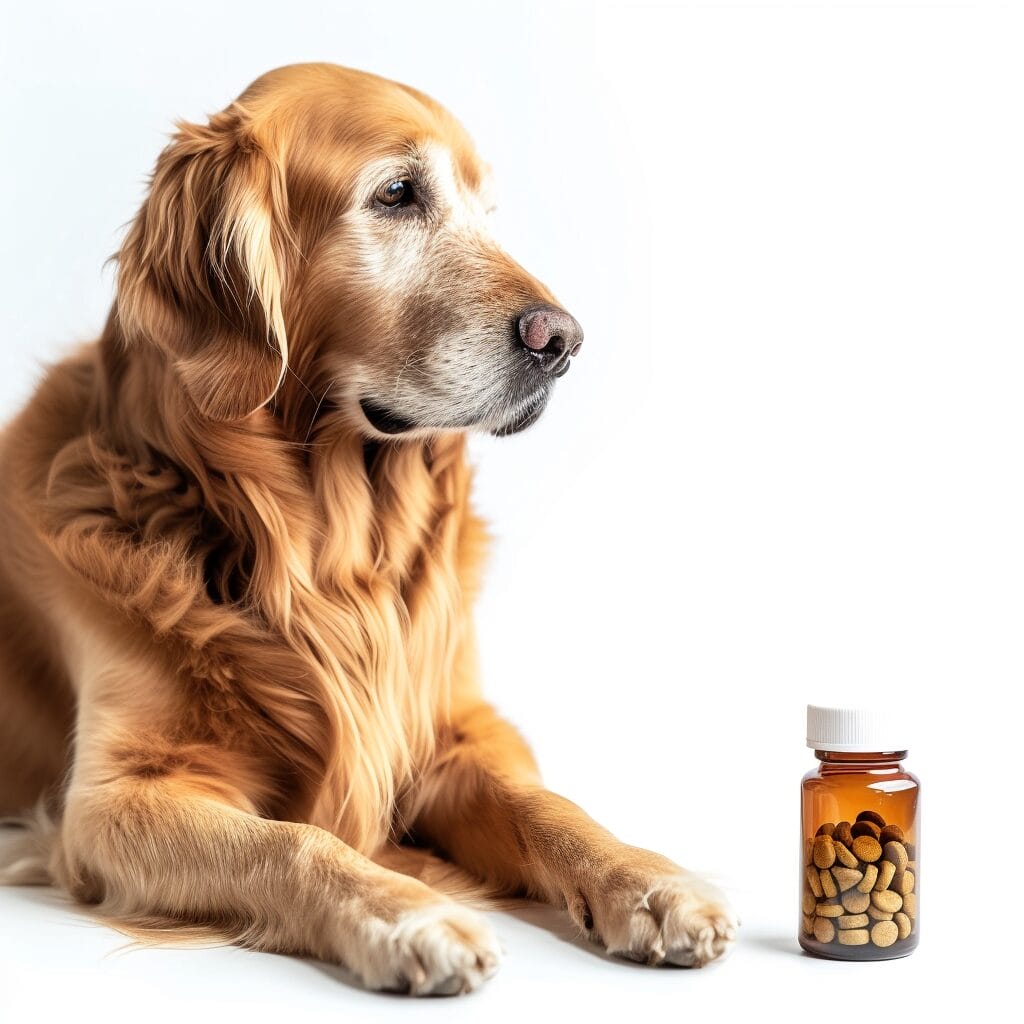
Strengthening Immunity
Probiotics, such as beneficial bacteria and microorganisms, are essential for enhancing a dog’s immune system. By maintaining a balanced gut flora, these good bacteria help in protecting the gut from harmful pathogens. This balance is crucial for supporting the production of antibodies, which play a vital role in boosting immunity in dogs.
Probiotics act as a shield by promoting a healthy gut microbiome. The presence of beneficial microbes helps combat bad bacteria, reducing the risk of various health issues that may compromise the dog’s immune system.
Protection Against Infections
The use of probiotics can significantly reduce the likelihood of skin infections caused by an imbalance in gut bacteria. By introducing live beneficial bacteria into the dog’s digestive system, probiotics aid in creating an environment that inhibits the growth of harmful microorganisms responsible for skin ailments.
Moreover, when dogs undergo antibiotic treatments that may disrupt their natural microbial balance, incorporating probiotics into their diet can be particularly beneficial. These supplements help replenish and restore the depleted gut protect and maintain overall well-being during and after antibiotic therapy.
Probiotics in Weight Management for Dogs

Influence on Fat Metabolism
Probiotics can play a significant role in weight management for dogs, especially those struggling with obesity. Certain probiotic strains have been found to influence fat metabolism, aiding in the reduction of fat accumulation. These beneficial bacteria help regulate the way fats are absorbed and processed by the canine body, potentially preventing excessive fat storage.
Research has shown that specific probiotic strains can impact how fats are metabolized within a dog’s system. By promoting the breakdown and utilization of fats, these probiotics may assist overweight dogs in shedding excess pounds. For instance, Lactobacillus acidophilus is one such strain known for its potential to modulate lipid metabolism, which could contribute to weight control when incorporated into a dog’s diet.
Regulation of Canine Appetite
In addition to their effect on fat metabolism, probiotics also have an impact on regulating appetite in dogs. When integrated into a dog’s daily routine, certain probiotic supplements or foods containing these beneficial microorganisms may help manage hunger levels more effectively. This regulation of appetite is crucial for overweight or obese dogs as it supports them in consuming appropriate portions without feeling constantly hungry.
Moreover, maintaining healthy levels of gut bacteria through probiotic supplementation can lead to improved digestive health and overall well-being for dogs. A balanced gut microbiome contributes to better nutrient absorption and utilization while supporting metabolic processes essential for maintaining an optimal body weight.
Probiotic Strains Specific to Canine Health
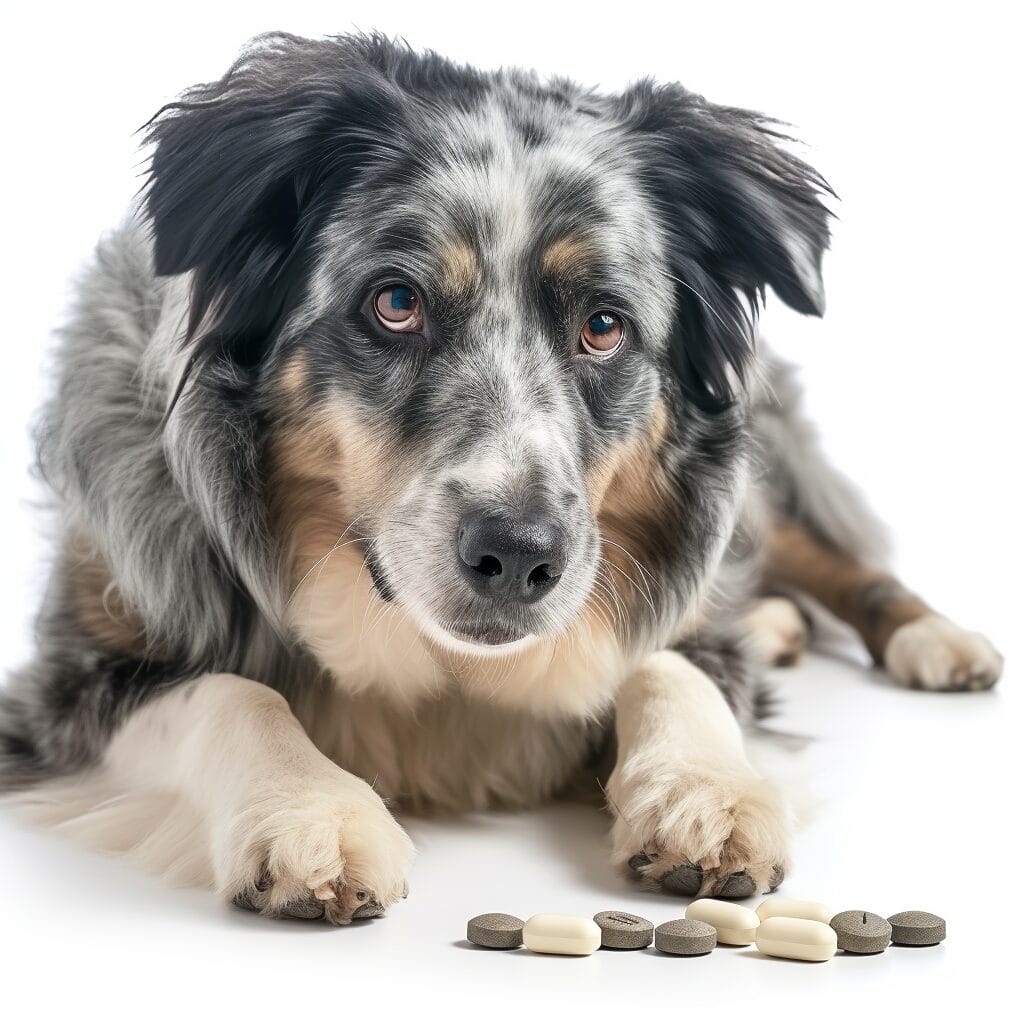
Common Probiotic Strains for Dogs
Lactobacillus acidophilus and Bifidobacterium animalis are two common probiotic strains known for their beneficial effects on canine health. Lactobacillus acidophilus helps in maintaining the balance of good bacteria in a dog’s gut, supporting overall digestive health. On the other hand, Bifidobacterium animalis is specifically recognized for its ability to promote healthy digestion in dogs.
These specific strains play a crucial role in addressing various issues related to a dog’s health. For example, when a dog experiences gastrointestinal upset or diarrhea due to stress, dietary changes, or antibiotics, these probiotic strains can help restore the balance of beneficial bacteria in the gut.
Tailored Health Benefits for Dogs
Different probiotic strains offer unique advantages that cater to the specific needs of dogs. For instance, some probiotics may target skin conditions such as allergies and itching, while others focus on bolstering immune function or reducing inflammation. This tailored approach ensures that dogs receive targeted support based on their individual health requirements.
Incorporating Probiotics into Your Dog’s Diet

Specialized Pet Food
Incorporating probiotics into your dog’s diet can be achieved through specialized dog food that is formulated with natural ingredients. These foods are designed to promote a healthy balance of gut bacteria in dogs, contributing to their overall well-being. Many dog foods now contain added probiotics, making it convenient for pet owners to provide this essential supplement without the need for additional products or supplements.
Specialized dog foods enriched with probiotics offer a hassle-free way to ensure that your furry friend receives the necessary beneficial bacteria as part of their daily meals. By incorporating these foods into your dog’s regular diet, you can effortlessly support their digestive health and immune system while providing them with balanced nutrition.
Gradual Introduction
When introducing probiotics into your dog’s diet, it is crucial to do so gradually. This gradual approach helps prevent potential digestive upset in dogs as they adjust to the new addition of beneficial bacteria. Start by adding small amounts of probiotic-rich food or supplements to your dog’s meals and observe how they respond over time.
A slow and steady integration allows your pet’s digestive system to adapt comfortably without causing any adverse effects such as diarrhea or stomach discomfort. Over time, as your dog becomes accustomed to the presence of probiotics in their diet, you can steadily increase the amount until reaching an optimal level that supports their digestive and immune health needs effectively.
Consultation with Veterinarian
Consulting with a veterinarian is essential when determining the appropriate dosage of probiotics for your canine companion. Each dog has unique dietary requirements based on various factors such as age, size, breed, and existing health conditions. A professional veterinary assessment ensures that you administer an appropriate amount of probiotics tailored specifically for your furry friend’s individual needs.
Monitoring Your Dog’s Response to Probiotics
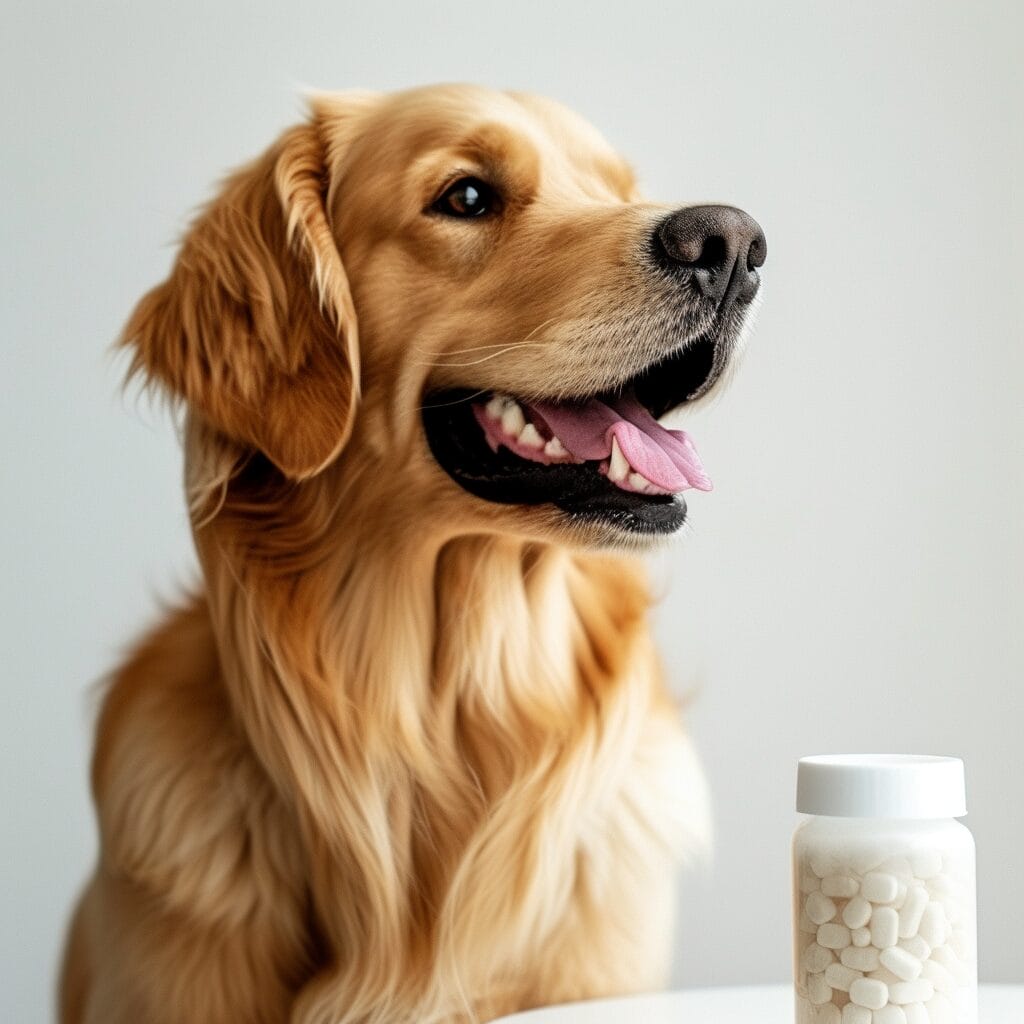
Observing Changes
After introducing probiotics into your dog’s diet, it’s essential to observe any changes in their digestion, coat condition, and overall energy levels. Look for improvements such as reduced gas or bloating, firmer stools, shinier coat, and increased vitality. These positive changes indicate that the probiotics are benefiting your dog’s digestive system and overall well-being.
It is crucial to be aware of any adverse reactions or side effects that may occur after administering probiotic supplements. Keep an eye out for symptoms like diarrhea, vomiting, excessive drooling, or lethargy. If you notice any negative changes in your dog’s health or behavior following the introduction of probiotics, consult a veterinary professional immediately.
Tracking Progress
Regularly monitoring your dog’s response to probiotics allows you to track their progress accurately. By keeping a journal of observations regarding their digestion and energy levels before and after starting the probiotics regimen can help identify any noticeable improvements or setbacks over time. This record will also serve as valuable information when discussing your pet’s health with a veterinarian.
Consulting with a veterinary professional is crucial when assessing your dog’s response to easy administration of probiotics. They can provide guidance on how best to monitor and evaluate the effects of the supplements on your specific pet based on factors such as age, breed, size, and existing health conditions.
Conclusion
In conclusion, the benefits of probiotics for dogs are significant. From improving digestive health to enhancing the immune system and aiding in weight management, the positive impact of probiotics on canine well-being is evident. Understanding the specific probiotic strains beneficial for dogs and incorporating them into their diet can lead to noticeable improvements in their overall health. Monitoring your dog’s response to probiotics is crucial in determining the effectiveness of the supplements and ensuring that they are positively impacting your pet’s well-being.
As you consider the health of your canine companion, take proactive steps to explore how probiotics can contribute to their vitality. With the right knowledge and implementation, probiotics can be a valuable addition to your dog’s wellness regimen, promoting a healthier and happier life for your beloved pet.
Frequently Asked Questions
What are probiotics and how do they benefit dogs?
Probiotics are live microorganisms that can provide health benefits when consumed in adequate amounts. For dogs, probiotics can help improve digestive health, enhance the immune system, aid in weight management, and promote overall well-being.
How do probiotics impact a dog’s digestive health?
Probiotics can help maintain a healthy balance of gut bacteria in dogs, which is essential for proper digestion and nutrient absorption. They may also alleviate symptoms of gastrointestinal issues such as diarrhea or constipation by promoting a healthy gut environment.
Are there specific probiotic strains beneficial for canine health?
Yes, certain probiotic strains have been identified to be particularly beneficial for dogs. Lactobacillus acidophilus, Bifidobacterium animalis, and Enterococcus faecium are examples of probiotic strains commonly used to support canine health.
How should I incorporate probiotics into my dog’s diet?
Probiotics for dogs are available in various forms such as powders, capsules, chews, or specially formulated pet foods. It’s important to follow the recommended dosage provided by your veterinarian or the product manufacturer to ensure optimal effectiveness.
What signs should I monitor to assess my dog’s response to probiotics?
When introducing probiotics into your dog’s diet, observe for any changes in their stool consistency and frequency. Keep an eye out for improvements in skin condition (if relevant) and overall energy levels as indicators of positive responses to the supplementation.

